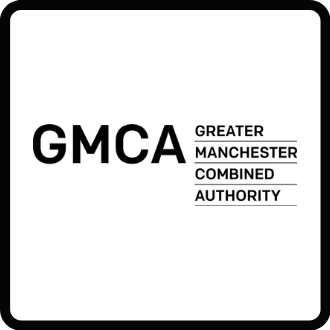 People across Greater Manchester are to be asked to help tackle inequality in the 10 boroughs as the city-region’s Independent Inequalities Commission launches an influential survey.
People across Greater Manchester are to be asked to help tackle inequality in the 10 boroughs as the city-region’s Independent Inequalities Commission launches an influential survey.
The drive to make Greater Manchester a more equal society will be informed by the new online survey designed to capture the views and experiences of residents across the city-region.
Results from the survey, which will run until the end of this month, will inform the important and innovative work of the Commission, which launched in October 2020 with an intention to “explore the root causes and drivers of inequality and offer solutions to tackle these issues across Greater Manchester.”
The Commission, which reports to the Mayor of Greater Manchester, Andy Burnham, and the 10 local authority Leaders, now wants to hear from people who have a passion in making Greater Manchester a fairer and more equal place to grow up, get on and grow old – in particular those with knowledge of the city-region’s inequalities or who have experience working with marginalised groups.
Cllr Brenda Warrington, Greater Manchester Combined Authority (GMCA) Lead for Equalities, said: “We really want to hear people’s views on the barriers to tackling longstanding inequalities in Greater Manchester and the untapped resources available locally to help redress these inequalities.
“Although the pandemic has widened inequalities and put a spotlight on particular issues, most of these issues are not new. The Commission is looking for practical solutions and concrete steps that can be taken to build greater equity in Greater Manchester and to mitigate the unequal impacts of the Covid-19 pandemic – if you have something to say and would like to contribute to this important work, please do log onto www.gmconsult.org and complete the survey in full by the end of January.”
The survey, which opened to submissions on 7 January 2021, has been specially designed to collate contributions and ideas and reflect contributors’ valuable experiences. Those participating will also be challenged to answer the question: ‘What is the one thing you would change to tackle inequality in Greater Manchester?
To find out more and to complete the survey click here
The Independent Inequalities Commission is chaired by Kate Pickett, Professor of Epidemiology and Deputy Director of the Centre for Future Health at the University of York.
Kate added: “Working alongside my fellow Commission Members, I am really keen to hear the views of the people of Greater Manchester on how they would create a more equal society.
“Greater equality is better for everyone, but I know that there are barriers and issues such as poverty, low pay, poor health, and unattainable standards in education and skills that are an embedded part of people’s lives. That’s why we want to hear from you about your ideas on how we can get to grips with the root causes of inequality and change everyone’s lives for the better.
“The Commission should be informed by the views of people from as many different backgrounds as possible – please do encourage others you know to take part in this conversation.”
Also on the Commission are:
- Saeed Atcha MBE DL, Deputy Lieutenant of Greater Manchester and Government Social Mobility Commissioner
- Miatta Fahnbulleh, Chief Executive of the New Economics Foundation
- Ruth Lupton, researcher and Honorary Professor at the University of Manchester
- Neil McInroy, CEO of the Centre for Local Economic Strategies (CLES)
- Rachel Wolf, Founding Partner at Public First
- Lord Simon Woolley, Director and Founder of Operation Black Vote
Acting in an independent capacity, the Commission will report back to the Mayor and Leaders of the 10 local authorities in March 2021. It will initiate a conversation with and draw upon the work of existing groups and equalities programmes across Greater Manchester, as well as reaching out across communities to help produce its recommendations.
The evidence-based recommendations it develops will influence the Greater Manchester Strategy, the comprehensive plan for the future of our city-region covering economic growth, health, wellbeing, jobs, housing, transport, skills and training.
Deadline: 31 January 2021